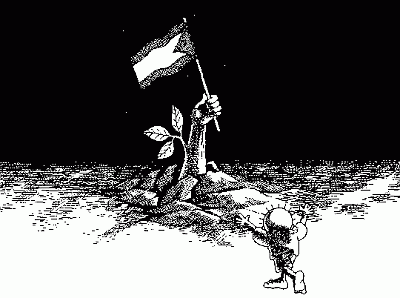"The regime established by the October Revolution was neither totalitarian nor bureaucratic, but the most democratic regime yet seen on earth - a regime in which, for the first time, millions of ordinary men and women overthrew their exploiters, took their destiny in their own hands, and at least began the task of transforming society." ~ Alan Woods
Monday, April 03, 2006
Subscribe to:
Post Comments (Atom)

7 comments:
"the most democratic regime yet seen on earth"
Mmm.. Someone seems to be in desperate need for "approval".. :)
Comrade, if you triple check on the foundations of the boleshevici government, you would be fascinated on its history.
http://www.marxist.com/LeninAndTrotsky/
http://www.marxist.com/bolshevism/
:) A government is still a GOVERNment. :)
yes, and you are an anarchist and I am a marxist (keep in mind that we think that a government is a transitional phase). May I remind you of the Bakuninist Spain in the upper half of the 19th Century ;)
MFL
yes, and you are an anarchist and I am a marxist
That is the whole point of my criticism. I thought it didn't need a clarification. :D
And well, I am not a Bakuninist nor a Proudhonist, so it's a moot point.
Is a transitional state necessary? Well to determine this we'll need to ask what it is necessary for.
Correct me if I'm wrong, but I believe marxists consider the transitional state necessary in order to stop the capitalist class from reestablishing itself.
Then we have to ask is it the existence of the state that stops the capitalist class or is it something the state does?
Correct me if I'm wrong again, but I believe it's the fact that the state uses force to stop anyone attempting to reestablish capitalist property relations.
Now, let's look at the anarchists in Spain. It wasn't called a state, but they did have an organization of democratic workplaces called a syndicate. It did prohibit capitalist property relations and would use force to stop it. Capitalism did not reemerge in the anarchist part of Spain during the revolution. It was only reestablished by outside forces. Does the fact that the syndicate was willing to use force to stop capitalism make it a state? Maybe, but if that's the case then the difference between marxism and anarchism boils down to semantics, and fighting over semantics is not going to get us anywhere.
Post a Comment